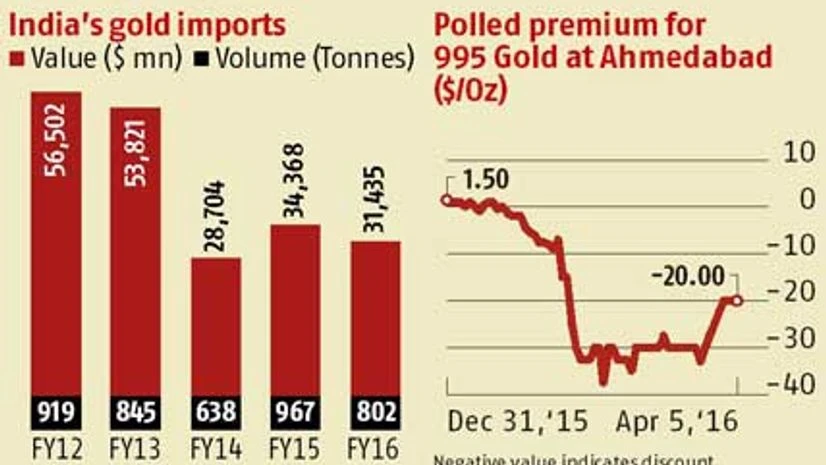Levy changes in the Union Budget and then the national strike of jewellers have halted activity along the value chain in the business, says the trade.
There is a lack of demand for refined gold after the strike. In addition, goes the complaint, duty changes in the Budget make refining unviable. The finance minister had proposed raising the countervailing duty (CVD) on gold dore (semi-refined) to 8.75 per cent, from eight per cent. And, the excise duty on refined gold made from dore was to be raised to 9.5 per cent, from nine per cent.
Read more from our special coverage on "EXCISE DUTY"

Rajesh Khosla, managing director, MMTC-PAMPS, the country's only refinery approved by the London Bullion Market Association, suggests the CVD on dore be raised to nine per cent and that on refined bars made with dore be 9.25 per cent. “This will make excise paying and excise-free area refineries viable,” he says. The former's margin will go up to 0.78 per cent and the latter to 1.01 per cent, he said. And, noted gold refining has to be viable if the government's gold monetisation scheme has to succeed.
As for unrefined gold, there is low demand; the market price quoted is at a steep discount to the cost of import. Which means 'unofficial import' has also halted. In March, the strike month, only 13 tonnes of gold were imported, according to an estimate by GFMS Thomson Reuters, a 29-month low. Of this, 10 tonnes were imported for re-export; dore import was hardly two tonnes.
The current discount offered is equivalent to Rs 400 for 10g. At this level, an importer of gold loses money unless he's making jewellery, which is not happening.

)
